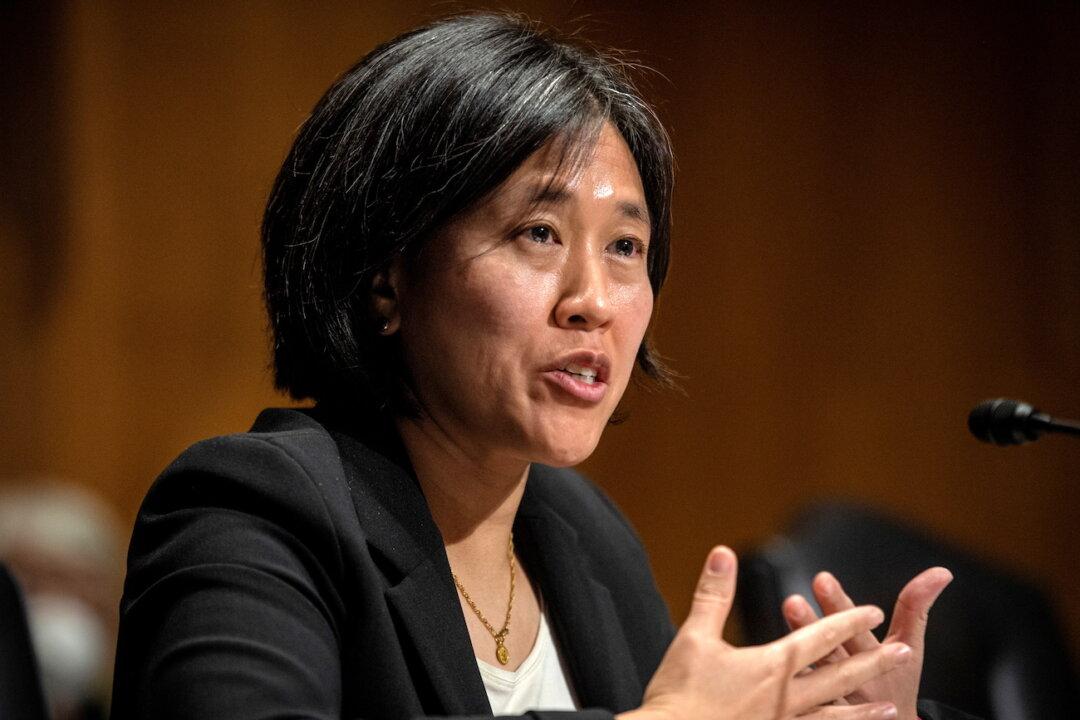Newly minted U.S. Trade Representative Katherine Tai told The Wall Street Journal in an interview published Sunday that the Biden administration isn’t planning to lift tariffs on Chinese goods anytime soon, although she signaled potential openness to trade negotiations with Beijing.
In her first post-confirmation interview, Tai said any sudden moves to lift tariffs were ill-advised as they could hurt the economy unless the change is “communicated in a way so that the actors in the economy can make adjustments.”





